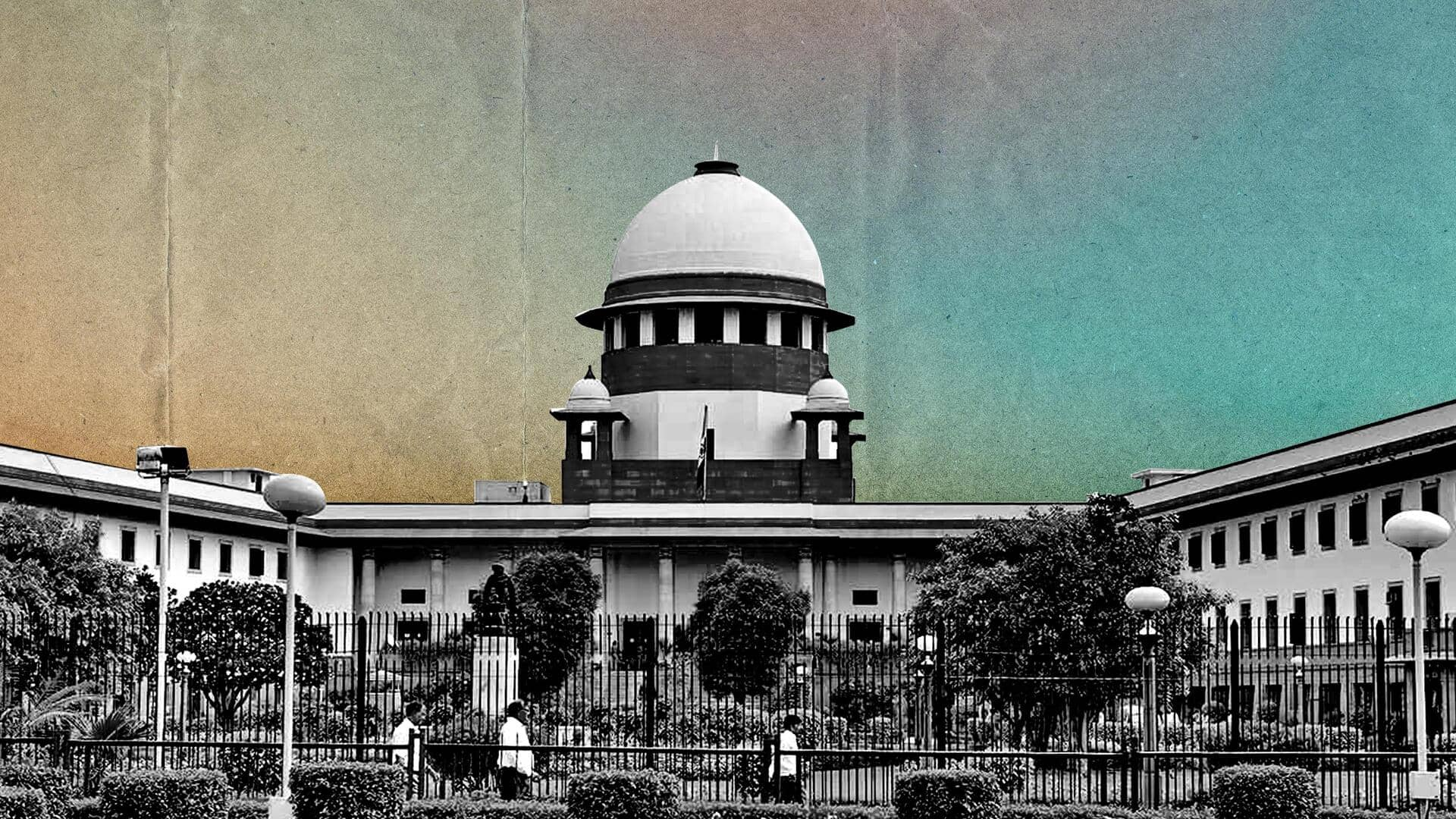
Can't implement women's reservation law immediately without census: SC
What's the story
The Supreme Court said on Friday that it would be "very difficult" to strike down the part of the women's reservation law that states that it can only be implemented after a census. The bench of Justices Sanjiv Khanna and SVN Bhatti listed the plea for hearing on November 22. The petitioner had sought the law's implementation before the 2024 Lok Sabha elections, arguing that a census is not required for the same.
Context
Why does this story matter?
Both Houses passed the Nari Shakti Vandan Adhiniyam or the Women's Reservation Bill, reserving 33% of seats for women in the Lok Sabha and state assemblies, in Parliament's special session in September. The bill may help the ruling Bharatiya Janata Party (BJP) in the upcoming Lok Sabha elections. However, the Congress-led opposition, which originally introduced the bill in 2008, accused the BJP of trying to score brownie points since it cannot be implemented before the 2029 elections without a census.
Details
Petitioner challenges supposed hurdle in bill
The plea urged the top court to declare the supposed constitutional obstruction as void ab initio for the law's immediate implementation. The petition contends that a constitutional amendment should not be delayed indefinitely, highlighting that both Houses of Parliament unanimously approved the bill and it also received the President of India's assent. It referred to an established legal principle stating that unless an amendment or legislation is deemed ultra vires or beyond the Constitution's purview, its execution cannot be halted.
Contention
What's the contention?
The alleged obstruction is that before implementing women's reservations, the constituencies need to be delimited or redrawn based on demographic changes. The delimitation exercise, mandated by Article 82 of the Indian Constitution—amended in 2002—can only be carried out based on the first Census after 2026, which would have been in 2031 as per norms. However, the decennial census, which was scheduled for 2021 but was postponed due to the pandemic, is still due and will be held in 2027.